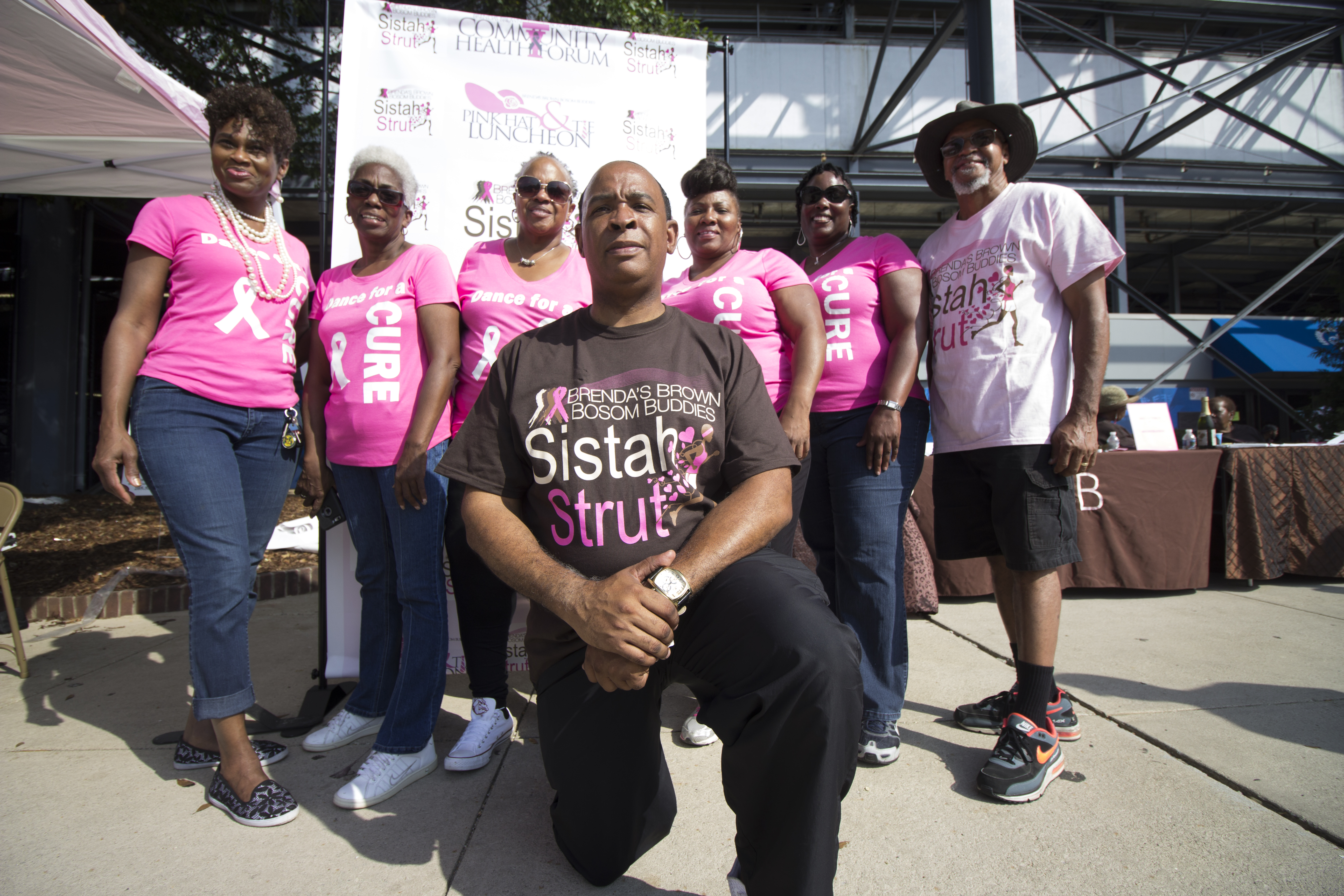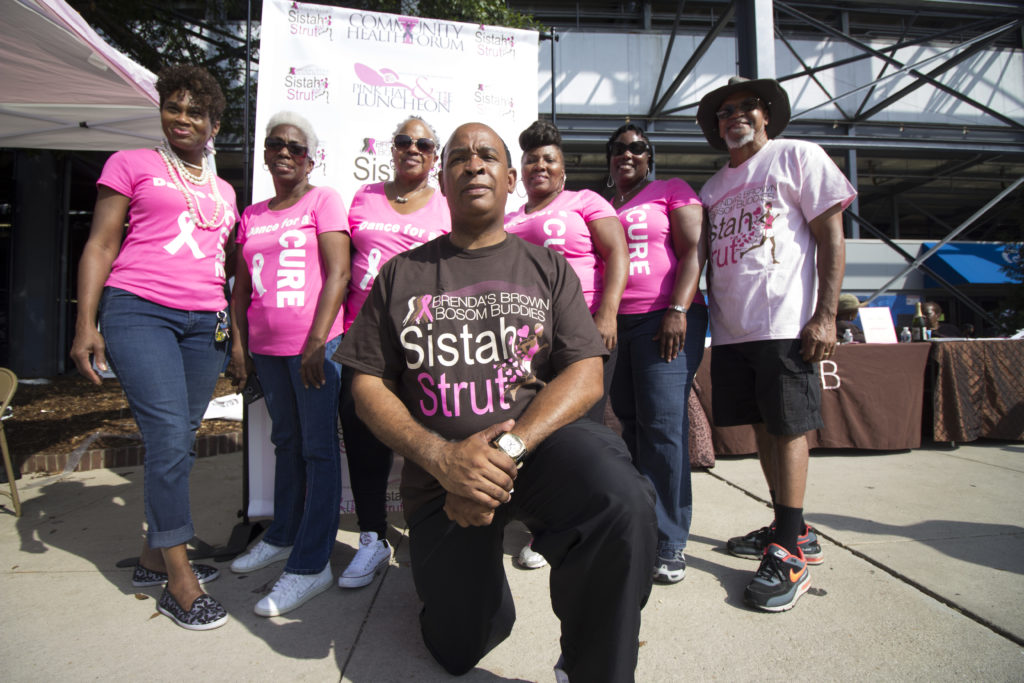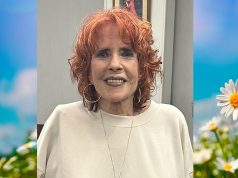
By Barnett Wright
The Birmingham Times

After his wife was diagnosed with triple-negative breast cancer, Tracey Muhammad asked one of the doctors present how he could help his wife. He was told something he never expected to hear.
“[The doctor] said a lot of men leave their wives when they go through something like this. It was almost like I had heard the worst news of my life—that my wife had been diagnosed—and then that many women’s spouses or significant others feel they can’t handle it and leave,” he said. “That really kind of blew me away.”
Muhammad’s wife, Nasira Sadette Muhammad, was diagnosed with breast cancer in 2012 and lived as an inspiration for three years with the disease.
“I’m grateful to God for that,” Muhammad said. “But the victory over death is when a woman like my wife could be so selfless, when those who came to comfort her left comforted by her. As I told some people at the hospital, ‘Nobody really dies unless there’s no one left to tell their story.’ I told them that I’m here to tell [my wife’s] story. So that’s victory over death.”
Giving Back
Breast Cancer Awareness Month is a time of special importance and focus for Muhammad, just as it is for so many others. The 49-year-old is a board member and volunteer with Brenda’s Brown Bosom Buddies, a Birmingham-based nonprofit organization that raises awareness about breast cancer in the black community and provides outreach and prevention initiatives. Muhammad has made it his mission to share his wife’s story through his efforts.
“I remember [my wife] telling me one day that she wanted to help a lot of people, and I told her she would. She’s been helping other people vicariously through me,” he said. “That’s why I feel such a need for survivors, co-survivors, or family members of loved ones who have transitioned to give back. There could be a little information [someone] has learned through the process that could help somebody else who may go through it in the future. [They] could [make a difference in] a life-or-death situation.”
The Muhammads were married for 17 years, and Tracey said of his wife, “[She was] the best wife a man could ever ask for, and she left me wealthy with four children because our children are our wealth.”
“For the last two years, even though I’ve been going through the transition and being there for my family, I still extended myself to others to help them.”
Muhammad said it’s unthinkable to leave a family when faced with a serious situation, particularly when children are involved.
“I can’t imagine [what would have happened] if I would have walked away and their mother was not there,” he said. “Being there with [the children] … gives them a lot more stability as they continue on this journey of life without their mother. They’ve been able to function school-wise and in other areas through their painful situation, so part of my role now is to do all I can, too.”
Muhammad would like to educate men on topics like triple-negative breast cancer, “one of the most aggressive forms of breast cancer to which a lot of black women succumb,” as well as other “breast cancer [diagnoses] so [men will] be educated, so they’ll have the power of knowledge.”
Family Experience
Education also involves teaching the family how to handle the diagnosis.
“There’s a scripture in the Bible in the book of Hosea that says, “… People are destroyed for the lack of knowledge,” Muhammad said “When [someone hears] about a person or a loved one being diagnosed with cancer, they become more reclusive. Family members in their minds say, ‘I don’t know what to say’ or ‘I don’t want to lose my loved one.’ So, they feel they need to retreat, and that’s not an option.”
“That’s when defeat is there from the beginning,” he said. “There are natural emotions a person goes through when they’re diagnosed, and there are natural emotions a family member goes through when they hear a loved one is diagnosed.”
Muhammad draws from his own experience, for instance, when explaining how he and his wife told their children.
“I asked, ‘Well, do you want to be in the room with me when I tell them?’ She said, ‘Sure.’ Her mind was so powerful, and she met everything head on,” he said. “I’ll never forget when I had the conversation with them with her present. [It was] so difficult for me to share that information, but all along I was asking God to help me.”
“As I began to tell [the children about their mother’s] diagnosis, I could see [tears] in their eyes. I told them that it was OK to feel that way and to express how they feel. During the conversation, God gave me this to give them: I told them that I knew they were hurt, I knew they were in pain, but … ‘God has given your mother and us a chance to fight.’ The moment I said that, I could see hope come back into their eyes. [We let] them know that there is hope, and that’s what every family has to hold on to—hope.”
‘Strength and Hope’
Muhammad said he wants to continue to help strengthen others, just like his wife did.
“When someone’s been down that path, they become a pillar of strength and hope …,” he said. “There is no emotion or fight like that of a person who’s been diagnosed. Those of us who are caretakers and supporters are outside the ring, but the person who is diagnosed is inside the ring fighting. … I know my wife helped several people. Recently, I had a conversation with a young lady who went to high school [with my wife], and she told me that when she had been diagnosed my wife shared some important information with her, and she’s still grateful for that.”
Summing up his work, Muhammad said: “I will say this with deep humility: doing what I’m doing, I’m not doing this for my wife; she’s transitioned. I’m doing something very unselfish because I understand that to go on and not open my mouth up again about my experience, my wife’s experience, my children’s experience would be very selfish.”
Reporter Trenisha Wiggins contributed to this article.



